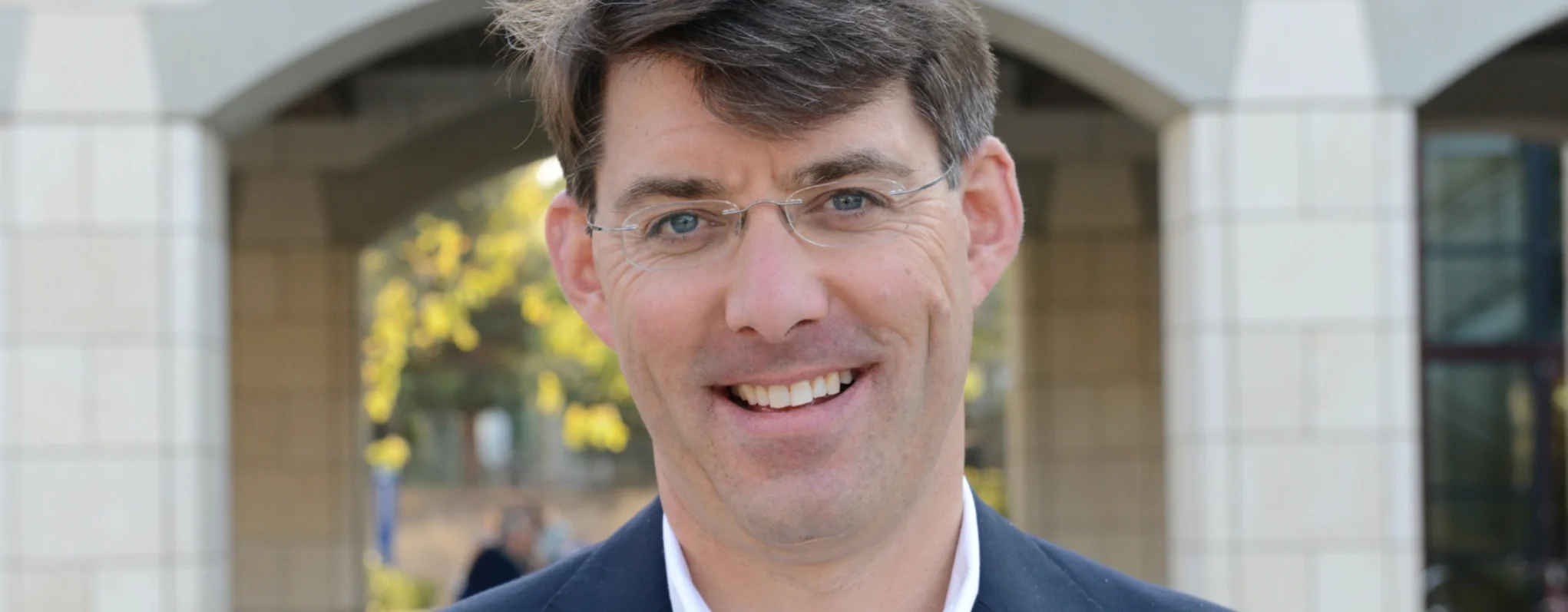Jeffrey Ball is an award-winning writer whose work focuses on energy and the environment and bridges journalism and academia. He is leading the development of a global-facing magazine of ideas for sustainability impact.
His stories and essays about the challenges and opportunities spurred by climate change have appeared in WIRED, Fortune, Foreign Affairs, Mother Jones, Texas Monthly, The New Republic, The Atlantic, The New York Times, The Wall Street Journal, and Slate, among other publications.
Ball is a member of the Council on Foreign Relations and is a nonresident senior fellow at the Brookings Institution in Brookings’ Energy Security and Climate Initiative. He speaks, and moderates discussions, about energy and environmental issues at gatherings in the United States and around the world.
From April 2024 through September 2025, he was editor-in-chief at Stanford University’s Doerr School of Sustainability. Prior to that, he spent a dozen years as the scholar-in-residence at Stanford’s Steyer-Taylor Center for Energy Policy and Finance, where his research, writing, and teaching focused on economically efficient ways to achieve meaningful sustainability in the parts of the world where that shift arguably matters most: the emerging markets and developing economies of Asia. He also was a lecturer at Stanford Law School.
He came to Stanford in 2011 from The Wall Street Journal, where he was the paper's environment editor and spent more than a decade writing about energy and the environment as a reporter and a columnist. In his approximately 15 years at The Journal, he was based in the paper's Atlanta, Detroit, and Dallas bureaus, and he traveled widely. He has reported from five continents and more than 15 countries.
Ball has appeared at conferences including the Fortune Global Sustainability Forum, an international conference on energy and the environment launched in Yunnan Province, China, in September 2019, which he co-chaired; ECO:comics, an annual Wall Street Journal forum on energy and the environment that he helped create and that continued for nearly a decade; and the Aspen Ideas Festival. For more than a decade he visited colleges to teach and speak as a Council of Independent Colleges Visiting Fellow. He has been interviewed on PBS, NPR, MSNBC, and CGTN, among other networks.
In 2019, Ball won a New York Press Club Award for Journalism and was named a finalist for a Gerald Loeb Award for Distinguished Business and Financial Journalism for “Lone Star Rising,” a 2018 long-form story he wrote in Fortune on how a renewed oil boom in West Texas’ iconic Permian Basin is reshaping both the region and the global energy system.
In 2015, he won the Society of American Business Editors and Writers’ top energy-writing prize for “The Drama of Mexico’s Black Gold,” a 2014 long-form Fortune story on Mexico's epic bid to reform its oil sector, an industry that fuels the nation's economy, defines its psyche, and has become hugely inefficient. The judges called the tale "a gripping and insightful piece," adding: "In his vivid telling, this business story becomes about much more than executives scrambling to transform a notoriously old-fashioned and inefficient company. It is the tale of a nation deciding to open up its energy markets to the world to stay competitive—and facing a very uncertain future."
In his prior work at Stanford’s Steyer-Taylor Center for Energy Policy and Finance, Ball launched and headed the Stanford Climate of Infrastructure Project, which leveraged new data and methods to track the climate implications of investment in infrastructure projects in emerging economies — infrastructure that will determine the trajectory of global carbon emissions for decades. In 2021, that work, developed with Stanford graduate students in a series of research seminars that Ball taught, produced a peer-reviewed paper, “Hot Money: Illuminating the Financing of High-Carbon Infrastructure in the Developing World,” and essays in the New York Times and with the Brookings Institution.
Ball’s earlier Stanford research and teaching focused, through an examination of the global solar-energy industry, on how China and the United States might deploy cleaner energy more economically efficiently if each played to its strengths. Ball was the primary author of a book-length Stanford report based on that research, The New Solar System, and of a New York Times op-ed on the report, both published in March 2017. The New Solar System laid out a strategy to boost solar energy to a level that would contribute meaningfully to global carbon reductions. The New Solar System, which drew widespread media coverage, illuminated little-understood changes in the Chinese solar industry, the world’s largest, and analyzed the implications for the rise of affordable solar power in the United States and the world. It argued that the United States needs to restructure its solar policies to make them more economically efficient – including adopting a more-nuanced approach to China. It continues to serve as a template for analyzing national comparative advantage in myriad low-carbon industries that are growing globally.
Ball has taught Stanford Law School graduate research seminars, known as “policy labs,” in which students from across the university took part in the research. He is an affiliated instructor in Stanford’s Emmett Interdisciplinary Program in Environment and Resources and an associated scholar at Stanford’s Center on Democracy, Development and the Rule of Law.
From 2014 through 2025, Ball and his wife were the resident fellows of Roble Hall, one of Stanford’s largest undergraduate houses, a role in which they provided leadership for some 300 Stanford students. They have two daughters, one in graduate school and one in college.
Ball graduated from Yale University, where he majored in history and was editor-in-chief of the Yale Daily News.
Photo by Mark Shwartz | Precourt Institute for Energy | Stanford University
